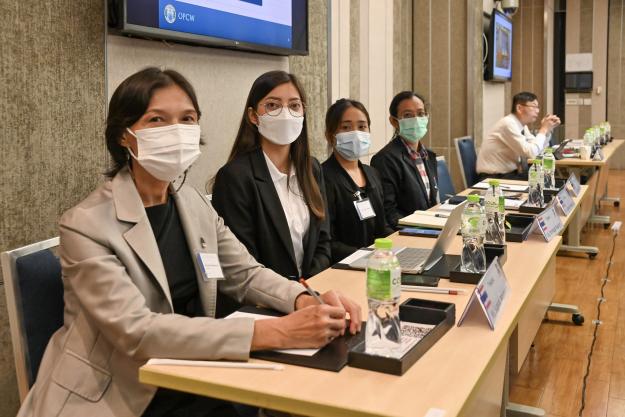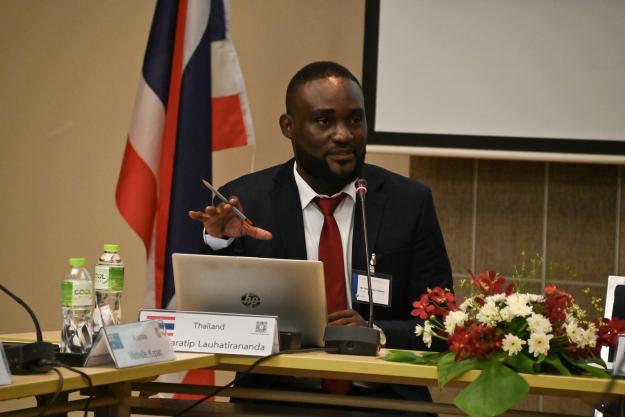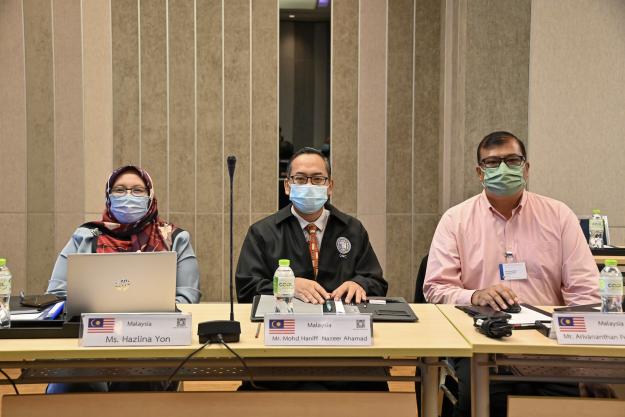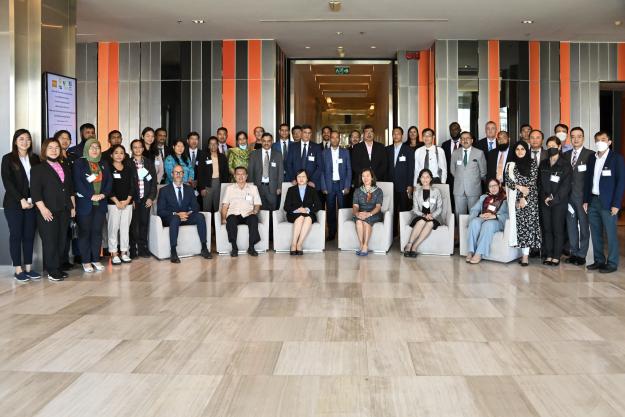
THE HAGUE, Netherlands—8 August 2022—The Technical Secretariat of the Organisation for the Prohibition of Chemical Weapons (OPCW), in collaboration with Thailand’s National Authority, the Hazardous Substance Management Division of the Department of Industrial Works, organised a workshop for technical and legal experts from Asia to share their experiences in developing legislative and regulatory frameworks on chemical security. The course was held in Bangkok, Thailand from 19 to 21 July 2022.
The workshop equipped participants with the expertise to improve regulatory frameworks related to chemical security and enhance implementation of the Chemical Weapons Convention (CWC) in Asia. During the course, participants discussed methodologies to develop legal tools and national control lists for chemicals.

Experts from the OPCW’s Technical Secretariat provided comprehensive lectures on how the national implementing legislation on the CWC addresses chemical security threats by targeting illicit activities involving chemicals.
In her opening statement, Ms Rattana Ruktrakul, Director of Thailand’s Hazardous Substance Management Division of the Department of Industrial Works, stressed the importance of effective regulatory frameworks in the comprehensive management of chemicals. She remarked: “Thailand is delighted to cooperate with the OPCW in creating this platform for discussions on how your laws and regulations are preventing the diversion of chemicals for possible misuse. This can serve as an example for other countries in the region in developing or enhancing their own national legal frameworks.”

Participants exchanged views on the challenges that face chemical management in light of the rapid growth of the global chemical trade and possible diversions of chemicals and related technologies. Approaches to address chemical security issues with stakeholders such as chemical industry and distributors were also discussed.
The course was attended by 41 participants from 11 OPCW Member States: Bangladesh, Cambodia, India, Indonesia, Malaysia, Pakistan, Philippines, Nepal, Sri Lanka, Thailand, and Vietnam. Technical experts from Australia, France, Kenya, Spain and the United Kingdom of Great Britain and Northern Ireland also contributed.

Background
This course was conducted under Article VII of the Chemical Weapons Convention, which provides for international cooperation and assistance for States Parties to enact national implementing legislation.
The OPCW’s Implementation Support Branch runs programmes aimed at supporting national implementation of the Chemical Weapons Convention, including in the development and adoption of implementing legislation. The programmes include awareness-raising and capacity building activities, such as National Legislative Review Forums and legal workshops.
As the implementing body for the Chemical Weapons Convention, the OPCW, with its 193 Member States, oversees the global endeavour to permanently eliminate chemical weapons. Since the Convention’s entry into force in 1997, it is the most successful disarmament treaty eliminating an entire class of weapons of mass destruction.
Over 99% of all declared chemical weapon stockpiles have been destroyed under OPCW verification. For its extensive efforts in eliminating chemical weapons, the OPCW received the 2013 Nobel Peace Prize.
